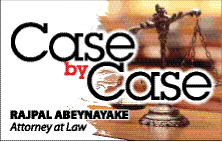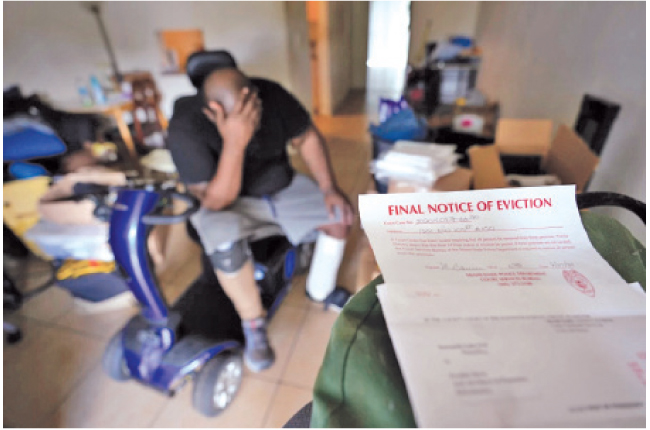 This is a case in which a landlord applies for ejectment of the tenant in District Court but is denied relief. The plaintiff appeals the judgment but the appeals process is long drawn and the original plaintiff and respondent both being subsequently deceased, substitutions are made of their next of kin for the purposes of the case.
This is a case in which a landlord applies for ejectment of the tenant in District Court but is denied relief. The plaintiff appeals the judgment but the appeals process is long drawn and the original plaintiff and respondent both being subsequently deceased, substitutions are made of their next of kin for the purposes of the case.
Meanwhile the tenant seeks to effect repairs to the house by a motion in the Court of Appeal but the plaintiff appellant seeks to leave to appeal in the Supreme Court against the Court of Appeal’s order and the right of that Court to make such order. (Kulatunge v. Peiris – SLR – 357, Vol 1 of 2002 [2002] LKSC 2; (2002) 1 Sri LR 357 (2 August 2002).
Since this appeal in the Court of Appeal is a final appeal there is no interim order than can be made for effecting repairs, submits counsel for a plaintiff-appellant in Court.
Basically the submission is that there is no case for the tenant to effect repairs because there is an appeal in progress and the tenant’s position is therefore rather tenuous. The application by the defendant respondent however is allowed. The substituted defendant is allowed to repair the roof of the house and the Court of Appeal holds that he could “effect temporary repairs to the roof only to prevent the building from collapsing [and] is not entitled to claim any compensation for the said repairs.”
Proper procedure
The submission of the plaintiff appellant’s counsel is that the Court of Appeal simply has no jurisdiction to make such an order as it did with regard to repairs as the proper procedure for the tenant is to go to the Rent Board. The fact that there was an appeal in the Court of appeal notwithstanding, going to the Rent Board is the only recourse, counsel submits.
He also submitted that there was no affidavit or proof whatsoever that the premises indeed needed repairs. But perhaps his client did not desire the preservation of the premises because indeed if the residence was rendered unlivable, then the tenancy would end.
The judgment observes:
“It was not his position that the substituted plaintiff desired the preservation of the premises – perhaps because the destruction of the premises might have resulted in the termination of the tenancy, if indeed there was one.”
The simple question before the court was whether the Court of Appeal had “jurisdiction to effect repairs to prevent the building from collapsing, i.e. to prevent the virtual destruction of the subject-matter of the action”.
The Court cannot issue an order if it did not have the legal authority to do so.
The counsel for defendant-respondent did not also indicate that there was any specific provision that confers the Court such authority.
The judgment states: “Does the Court have an inherent power to make an order to prevent the destruction of the subject-matter of the action? Section 839 of the Civil Procedure Code did not confer any new power, but was merely legislative recognition of an age-old and well-established principle that every Court has inherent power “to make such order as may be necessary for the ends of justice”.”
Specific laws
In the interests of Justice certain orders can be made even if there are no specific laws that empower such orders.
The sale of properties can be stayed for instance, it was ruled in a District Court case. If the decree regarding a judgment went in favour of the judgment-debtor in this cited case he would find the judgment useless if the properties had been already sold. (De Silva v De Silva – (1964) 68 NLR 45.)
The judgment states:
“In Abeyaratna v. Perera, (1912) 15 NLR 347) a sale had taken place in accordance with the directions in a decree. It was held, despite the lack of express provision, that “the Court must have inherent power to render that sale effectual” by ordering delivery of possession to the purchaser.”
In Sirinivasa Thera v. Sudassi Thera (- (1960) 63 NLR 31) it was decided that the Court effectively must account for its own delay and in this case under review there has been a tremendous delay in hearing the appeal and that had to be factored into any order that’s being made.
The District Court had held in 1992 that the defendant was a tenant. So for all intents and purposes the substituted defendant was a tenant and it should have been taken into consideration that she had the rights of a tenant.
Substituted defendant
Any repairs are to the benefit of the owner normally, the Court observed in judgment, but be that as it may it was the duty of the landlord to ensure that repairs are made so that the premises are not dangerous to live in. Whether the rent covers the repairs or not the tenant is entitled to make the repairs as are necessary for the tenant to continue to live safely in the premises.
The court observes in judgment: “Besides, the substituted defendant does not make any claim to the costs of repair. Hence, whatever may be the position as to liability for the cost of essential repairs (necessary expenses), if the landlord does not effect such repairs so that there is a danger that the building may collapse, the tenant may attend to them himself – in the exercise of his rights under the tenancy agreement, or in the discharge of his duty to mitigate the loss and damage which he would otherwise suffer…”
The appeal however was allowed subject to the variation that the repairs are allowed pending appeal. It means that the tenant has no inherent right by himself to make repairs and can only do so as a tenant pending appeal.
It is worth noting also that it was held the substituted defendant failed to make a proper application to the Court of Appeal invoking its inherent jurisdiction to make an order, allowing her to make necessary repairs to the premises in suit. Such application should have been supported by affidavit and the Court should have given the substituted plaintiff an opportunity of being heard before making an order, Supreme Court held. That was not done by the Court of Appeal, it was categorically held. To that extent the appeal was successful but the substituted defendant was allowed to make the necessary repairs to the roof of the house in exercise of her rights as tenant. No costs were ordered.







